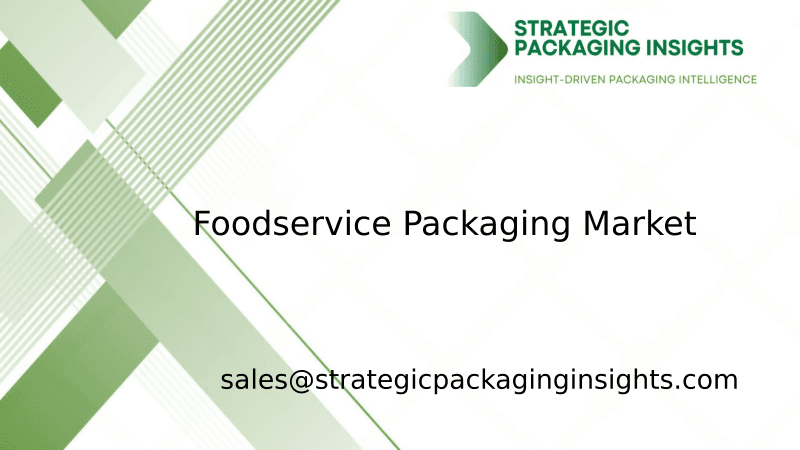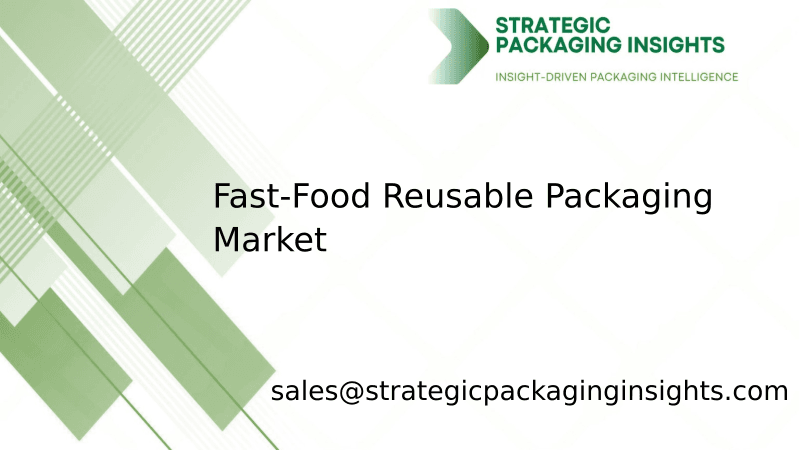- Home
- Packaging Products
- Expanded Polystyrene EPS Packaging Market Size, Future Growth and Forecast 2033
Expanded Polystyrene EPS Packaging Market Size, Future Growth and Forecast 2033
Expanded Polystyrene EPS Packaging Market Segments - by Type (White EPS, Grey EPS), Application (Food and Beverage, Electronics, Healthcare, Automotive, Others), End-User (Manufacturers, Retailers, Distributors, Consumers), and Region (Asia Pacific, North America, Latin America, Europe, and Middle East & Africa) - Market Dynamics, Growth Opportunities, Strategic Drivers, and PESTLE Outlook (2025–2033)
Expanded Polystyrene EPS Packaging Market Outlook
The Expanded Polystyrene (EPS) Packaging market was valued at $15 billion in 2024 and is projected to reach $22 billion by 2033, growing at a CAGR of 4.5% during the forecast period 2025-2033. This growth is driven by the increasing demand for lightweight and durable packaging solutions across various industries such as food and beverage, electronics, and healthcare. The versatility of EPS packaging, which offers excellent thermal insulation and shock absorption properties, makes it a preferred choice for manufacturers and consumers alike. Additionally, the rising trend of e-commerce and home delivery services has further fueled the demand for EPS packaging, as it ensures the safe transportation of goods.
However, the market faces challenges due to environmental concerns associated with the disposal and recycling of EPS materials. Regulatory restrictions on the use of non-Biodegradable Packaging materials in several regions are expected to impact market growth. Despite these challenges, advancements in recycling technologies and the development of biodegradable EPS alternatives present significant growth opportunities. Companies are increasingly investing in research and development to create sustainable EPS solutions, which could mitigate environmental concerns and drive market expansion.
Report Scope
| Attributes | Details |
| Report Title | Expanded Polystyrene EPS Packaging Market Size, Future Growth and Forecast 2033 |
| Base Year | 2024 |
| Historic Data | 2017-2023 |
| Forecast Period | 2025-2033 |
| Number of Pages | 244 |
| Type | White EPS, Grey EPS |
| Application | Food and Beverage, Electronics, Healthcare, Automotive, Others |
| End-User | Manufacturers, Retailers, Distributors, Consumers |
| Region | North America, Europe, Asia-Pacific, Latin America, Middle East & Africa |
| Customization Available | Yes* |
Opportunities & Threats
The Expanded Polystyrene EPS Packaging market presents numerous opportunities, particularly in the realm of sustainability and innovation. As environmental awareness grows, there is a significant push towards developing eco-friendly EPS alternatives. Companies that invest in research and development to create biodegradable or recyclable EPS products are likely to gain a competitive edge. Additionally, the increasing demand for customized packaging solutions offers opportunities for manufacturers to cater to specific industry needs, such as temperature-sensitive packaging for pharmaceuticals or impact-resistant packaging for electronics. The expansion of e-commerce and the global supply chain also provide opportunities for EPS packaging, as it is lightweight and cost-effective for shipping.
Another opportunity lies in the emerging markets of Asia-Pacific and Latin America, where industrialization and urbanization are driving the demand for efficient packaging solutions. The growing middle-class population in these regions is leading to increased consumption of packaged goods, thereby boosting the demand for EPS packaging. Furthermore, government initiatives promoting the use of Sustainable Packaging materials are expected to create a favorable environment for market growth.
Despite these opportunities, the market faces threats from regulatory restrictions and environmental concerns. Many countries are implementing stringent regulations on the use of non-biodegradable packaging materials, which could limit the growth of EPS packaging. Additionally, the increasing availability of alternative packaging materials, such as biodegradable plastics and paper-based solutions, poses a threat to the EPS market. Companies must navigate these challenges by investing in sustainable practices and developing innovative solutions to remain competitive.
The Expanded Polystyrene EPS Packaging market is characterized by a competitive landscape with several key players vying for market share. The market is dominated by a few large companies, but there is also a significant presence of small and medium-sized enterprises that contribute to the overall market dynamics. The competitive environment is driven by factors such as product innovation, pricing strategies, and distribution networks. Companies are focusing on expanding their product portfolios and enhancing their production capabilities to meet the growing demand for EPS packaging.
Major companies in the EPS packaging market include BASF SE, TotalEnergies SE, Alpek S.A.B. de C.V., Kaneka Corporation, and Synthos S.A. BASF SE is a leading player with a strong focus on sustainability and innovation. The company offers a wide range of EPS products and has a robust distribution network across various regions. TotalEnergies SE is another key player known for its extensive product portfolio and commitment to environmental sustainability. The company has been actively involved in developing recyclable EPS solutions to address environmental concerns.
Alpek S.A.B. de C.V. is a prominent player in the EPS market, with a strong presence in the Americas. The company focuses on expanding its production capacity and enhancing its product offerings to cater to diverse industry needs. Kaneka Corporation, based in Japan, is known for its innovative EPS solutions and has a significant market share in the Asia-Pacific region. Synthos S.A., a European company, is recognized for its high-quality EPS products and strong customer relationships.
Other notable players in the market include StyroChem, Sunpor Kunststoff GmbH, and BEWiSynbra Group. These companies are actively investing in research and development to create sustainable EPS solutions and expand their market presence. The competitive landscape is expected to intensify as companies focus on strategic partnerships, mergers, and acquisitions to strengthen their market position.
Key Highlights Expanded Polystyrene EPS Packaging Market
- The EPS packaging market is projected to grow at a CAGR of 4.5% from 2025 to 2033.
- Increasing demand for lightweight and durable packaging solutions is driving market growth.
- Environmental concerns and regulatory restrictions pose challenges to market expansion.
- Advancements in recycling technologies offer growth opportunities for sustainable EPS solutions.
- Asia-Pacific and Latin America are emerging as key markets for EPS packaging.
- Major players are focusing on product innovation and sustainability to gain a competitive edge.
- The rise of e-commerce and home delivery services is boosting the demand for EPS packaging.
- Companies are investing in research and development to create biodegradable EPS alternatives.
- Strategic partnerships and acquisitions are shaping the competitive landscape.
Competitive Intelligence
The competitive landscape of the Expanded Polystyrene EPS Packaging market is shaped by the strategies and innovations of leading companies. BASF SE, a major player, focuses on sustainability and innovation, offering a wide range of EPS products. The company has a robust distribution network and is committed to developing eco-friendly solutions. TotalEnergies SE is known for its extensive product portfolio and environmental sustainability initiatives. The company is actively involved in creating recyclable EPS solutions to address environmental concerns.
Alpek S.A.B. de C.V. has a strong presence in the Americas and focuses on expanding its production capacity and enhancing its product offerings. Kaneka Corporation, based in Japan, is recognized for its innovative EPS solutions and significant market share in the Asia-Pacific region. Synthos S.A., a European company, is known for its high-quality EPS products and strong customer relationships.
Other notable players include StyroChem, Sunpor Kunststoff GmbH, and BEWiSynbra Group. These companies are investing in research and development to create sustainable EPS solutions and expand their market presence. The competitive landscape is expected to intensify as companies focus on strategic partnerships, mergers, and acquisitions to strengthen their market position.
Regional Market Intelligence of Expanded Polystyrene EPS Packaging
The global Expanded Polystyrene EPS Packaging market is segmented into major regions, including North America, Europe, Asia-Pacific, Latin America, and Middle East & Africa. In North America, the market is driven by the demand for sustainable packaging solutions and the presence of major players. The region is expected to witness steady growth due to advancements in recycling technologies and increasing environmental awareness.
In Europe, stringent regulations on non-biodegradable packaging materials are influencing market dynamics. The region is focusing on sustainable practices and the development of eco-friendly EPS alternatives. The market in Asia-Pacific is experiencing rapid growth due to industrialization, urbanization, and the rising middle-class population. The demand for efficient packaging solutions is driving market expansion in this region.
Latin America is emerging as a key market for EPS packaging, with increasing consumption of packaged goods and government initiatives promoting sustainable packaging. In the Middle East & Africa, the market is driven by the demand for lightweight and durable packaging solutions, with a focus on expanding distribution networks and enhancing product offerings.
Top Countries Insights in Expanded Polystyrene EPS Packaging
In the Expanded Polystyrene EPS Packaging market, the top countries include the United States, China, Germany, Brazil, and South Africa. The United States is a major market, with a focus on sustainability and innovation. The market is driven by the demand for eco-friendly packaging solutions and advancements in recycling technologies. The Chinese market is experiencing rapid growth due to industrialization and urbanization, with a CAGR of 15%. The demand for efficient packaging solutions is driving market expansion.
In Germany, stringent regulations on non-biodegradable packaging materials are influencing market dynamics. The market is focusing on sustainable practices and the development of eco-friendly EPS alternatives. Brazil is emerging as a key market, with increasing consumption of packaged goods and government initiatives promoting sustainable packaging. The market in South Africa is driven by the demand for lightweight and durable packaging solutions, with a focus on expanding distribution networks and enhancing product offerings.
Expanded Polystyrene EPS Packaging Market Segments Insights
Type Analysis
The Expanded Polystyrene EPS Packaging market is segmented by type into White EPS and Grey EPS. White EPS is the most commonly used type due to its excellent thermal insulation and shock absorption properties. It is widely used in the food and beverage industry for packaging perishable goods. The demand for White EPS is driven by its cost-effectiveness and versatility, making it a preferred choice for manufacturers and consumers alike. Grey EPS, on the other hand, is gaining popularity due to its enhanced thermal insulation properties and environmental benefits. It is increasingly used in the construction industry for insulation purposes, contributing to energy efficiency and sustainability.
The market for Grey EPS is expected to grow at a significant rate due to the rising demand for energy-efficient building materials. The development of eco-friendly Grey EPS solutions is also driving market growth, as companies focus on creating sustainable alternatives to traditional EPS products. The competition between White and Grey EPS is intensifying, with companies investing in research and development to enhance the properties and applications of both types.
Application Analysis
The application segment of the Expanded Polystyrene EPS Packaging market includes food and beverage, electronics, healthcare, automotive, and others. The food and beverage industry is the largest application segment, driven by the demand for lightweight and durable packaging solutions. EPS packaging is widely used for transporting perishable goods, as it provides excellent thermal insulation and shock absorption. The electronics industry is another major application segment, with EPS packaging used for protecting delicate electronic components during transportation.
In the healthcare industry, EPS packaging is used for temperature-sensitive products such as pharmaceuticals and medical devices. The demand for EPS packaging in the automotive industry is also growing, as it is used for protecting automotive parts during transportation. The versatility and cost-effectiveness of EPS packaging make it a preferred choice across various industries, driving market growth.
End-User Analysis
The end-user segment of the Expanded Polystyrene EPS Packaging market includes manufacturers, retailers, distributors, and consumers. Manufacturers are the largest end-users, as they require efficient packaging solutions for transporting goods. The demand for EPS packaging among manufacturers is driven by its lightweight and cost-effective properties, which reduce transportation costs and enhance product protection. Retailers and distributors also use EPS packaging for storing and transporting goods, as it ensures the safe delivery of products to consumers.
Consumers are increasingly using EPS packaging for home delivery services, as it provides excellent protection for goods during transportation. The rise of e-commerce and online shopping has further fueled the demand for EPS packaging among consumers. The end-user segment is expected to witness significant growth, driven by the increasing demand for efficient and sustainable packaging solutions.
Region Analysis
The regional segment of the Expanded Polystyrene EPS Packaging market includes North America, Europe, Asia-Pacific, Latin America, and Middle East & Africa. North America is a major market, driven by the demand for sustainable packaging solutions and the presence of major players. The region is expected to witness steady growth due to advancements in recycling technologies and increasing environmental awareness. Europe is focusing on sustainable practices and the development of eco-friendly EPS alternatives, driven by stringent regulations on non-biodegradable packaging materials.
Asia-Pacific is experiencing rapid growth due to industrialization, urbanization, and the rising middle-class population. The demand for efficient packaging solutions is driving market expansion in this region. Latin America is emerging as a key market for EPS packaging, with increasing consumption of packaged goods and government initiatives promoting sustainable packaging. The Middle East & Africa is driven by the demand for lightweight and durable packaging solutions, with a focus on expanding distribution networks and enhancing product offerings.
Market Share Analysis
The market share distribution of key players in the Expanded Polystyrene EPS Packaging market is influenced by factors such as product innovation, pricing strategies, and distribution networks. BASF SE, TotalEnergies SE, and Alpek S.A.B. de C.V. are leading companies with significant market shares, driven by their focus on sustainability and innovation. These companies are investing in research and development to create eco-friendly EPS solutions and expand their product portfolios. Kaneka Corporation and Synthos S.A. are also prominent players, known for their high-quality EPS products and strong customer relationships.
The competitive positioning of companies in the EPS packaging market is influenced by their ability to adapt to changing market dynamics and regulatory requirements. Companies that focus on sustainable practices and develop innovative solutions are likely to gain a competitive edge. The market share distribution affects pricing, innovation, and partnerships, as companies strive to enhance their market position and meet the growing demand for EPS packaging.
Expanded Polystyrene EPS Packaging Market Segments
The Expanded Polystyrene EPS Packaging market has been segmented on the basis of
Type
- White EPS
- Grey EPS
Application
- Food and Beverage
- Electronics
- Healthcare
- Automotive
- Others
End-User
- Manufacturers
- Retailers
- Distributors
- Consumers
Region
- North America
- Europe
- Asia-Pacific
- Latin America
- Middle East & Africa
Primary Interview Insights
What are the key drivers for the EPS packaging market?
What challenges does the EPS packaging market face?
How are companies addressing environmental concerns in the EPS market?
Which regions are expected to see the most growth in the EPS packaging market?
What role does innovation play in the EPS packaging market?
Latest Reports

The fiber drums market was valued at $1.2 billion in 2024 and is projected to reach $2.1 billion by 2033, growing at a CAGR of 6.5% during the forecast period 2025–2033.

The cosmetics and perfumery glass bottles market was valued at $1.5 billion in 2024 and is projected to reach $2.3 billion by 2033, growing at a CAGR of 4.8% during the forecast period 2025–2033.

The medical devices packaging market was valued at $25 billion in 2024 and is projected to reach $40 billion by 2033, growing at a CAGR of 5.5% during the forecast period 2025–2033.

The primary packaging labels market was valued at $35 billion in 2024 and is projected to reach $55 billion by 2033, growing at a CAGR of 5.2% during the forecast period 2025–2033.

The corrugated board packaging market was valued at $250 billion in 2024 and is projected to reach $380 billion by 2033, growing at a CAGR of 4.5% during the forecast period 2025–2033.

The Water Soluble Packaging Films market was valued at $2.8 billion in 2024 and is projected to reach $5.6 billion by 2033, growing at a CAGR of 8.1% during the forecast period 2025–2033.

The Aluminium Foil Packaging market was valued at $25 billion in 2024 and is projected to reach $40 billion by 2033, growing at a CAGR of 5.5% during the forecast period 2025–2033.

The self-heating food packaging market was valued at $4.5 billion in 2024 and is projected to reach $7.8 billion by 2033, growing at a CAGR of 6.2% during the forecast period 2025–2033.

The Smart Container market was valued at $2.5 billion in 2024 and is projected to reach $8.7 billion by 2033, growing at a CAGR of 14.5% during the forecast period 2025–2033.

The Automatic Labeling Machine market was valued at $2.5 billion in 2024 and is projected to reach $4.8 billion by 2033, growing at a CAGR of 7.2% during the forecast period 2025–2033.

The Hot Melt Glue Labeler market was valued at $1.2 billion in 2024 and is projected to reach $2.3 billion by 2033, growing at a CAGR of 6.5% during the forecast period 2025–2033.

The Ethical Label market was valued at $1.5 billion in 2024 and is projected to reach $3.2 billion by 2033, growing at a CAGR of 8.5% during the forecast period 2025–2033.

The Packaging Tensioner market was valued at $1.2 billion in 2024 and is projected to reach $2.3 billion by 2033, growing at a CAGR of 6.5% during the forecast period 2025–2033.

The foodservice packaging market was valued at $120 billion in 2024 and is projected to reach $180 billion by 2033, growing at a CAGR of 4.5% during the forecast period 2025–2033.

The nano-enabled packaging market was valued at $15.2 billion in 2024 and is projected to reach $35.6 billion by 2033, growing at a CAGR of 9.5% during the forecast period 2025–2033.

The Cold Seal Packaging market was valued at $1.5 billion in 2024 and is projected to reach $2.3 billion by 2033, growing at a CAGR of 4.8% during the forecast period 2025–2033.

The Transparent Barrier Packaging Films market was valued at $12.5 billion in 2024 and is projected to reach $20.3 billion by 2033, growing at a CAGR of 5.8% during the forecast period 2025–2033.

The Flatback Tape market was valued at $2.5 billion in 2024 and is projected to reach $4.1 billion by 2033, growing at a CAGR of 5.8% during the forecast period 2025–2033.

The packer bottle market was valued at $3.5 billion in 2024 and is projected to reach $5.8 billion by 2033, growing at a CAGR of 5.2% during the forecast period 2025–2033.

The Canada Nano-Enabled Packaging Food Beverages market was valued at $1.2 billion in 2024 and is projected to reach $3.5 billion by 2033, growing at a CAGR of 12.5% during the forecast period 2025–2033.

The India Aluminum Beverage Can market was valued at $1.2 billion in 2024 and is projected to reach $2.5 billion by 2033, growing at a CAGR of 8.5% during the forecast period 2025–2033.

The fast-food reusable packaging market was valued at $1.2 billion in 2024 and is projected to reach $3.5 billion by 2033, growing at a CAGR of 12.5% during the forecast period 2025–2033.

The pallets market was valued at $59.91 billion in 2024 and is projected to reach $88.69 billion by 2033, growing at a CAGR of 4.5% during the forecast period 2025–2033.

The lamination adhesives market was valued at $2.5 billion in 2024 and is projected to reach $4.1 billion by 2033, growing at a CAGR of 5.8% during the forecast period 2025–2033.

The garment packing machine market was valued at $1.2 billion in 2024 and is projected to reach $2.5 billion by 2033, growing at a CAGR of 8.5% during the forecast period 2025–2033.

The fiber drums market was valued at $1.2 billion in 2024 and is projected to reach $2.1 billion by 2033, growing at a CAGR of 6.5% during the forecast period 2025–2033.

The cosmetics and perfumery glass bottles market was valued at $1.5 billion in 2024 and is projected to reach $2.3 billion by 2033, growing at a CAGR of 4.8% during the forecast period 2025–2033.

The medical devices packaging market was valued at $25 billion in 2024 and is projected to reach $40 billion by 2033, growing at a CAGR of 5.5% during the forecast period 2025–2033.

The primary packaging labels market was valued at $35 billion in 2024 and is projected to reach $55 billion by 2033, growing at a CAGR of 5.2% during the forecast period 2025–2033.

The corrugated board packaging market was valued at $250 billion in 2024 and is projected to reach $380 billion by 2033, growing at a CAGR of 4.5% during the forecast period 2025–2033.

The Water Soluble Packaging Films market was valued at $2.8 billion in 2024 and is projected to reach $5.6 billion by 2033, growing at a CAGR of 8.1% during the forecast period 2025–2033.

The Aluminium Foil Packaging market was valued at $25 billion in 2024 and is projected to reach $40 billion by 2033, growing at a CAGR of 5.5% during the forecast period 2025–2033.

The self-heating food packaging market was valued at $4.5 billion in 2024 and is projected to reach $7.8 billion by 2033, growing at a CAGR of 6.2% during the forecast period 2025–2033.

The Smart Container market was valued at $2.5 billion in 2024 and is projected to reach $8.7 billion by 2033, growing at a CAGR of 14.5% during the forecast period 2025–2033.

The Automatic Labeling Machine market was valued at $2.5 billion in 2024 and is projected to reach $4.8 billion by 2033, growing at a CAGR of 7.2% during the forecast period 2025–2033.

The Hot Melt Glue Labeler market was valued at $1.2 billion in 2024 and is projected to reach $2.3 billion by 2033, growing at a CAGR of 6.5% during the forecast period 2025–2033.

The Ethical Label market was valued at $1.5 billion in 2024 and is projected to reach $3.2 billion by 2033, growing at a CAGR of 8.5% during the forecast period 2025–2033.

The Packaging Tensioner market was valued at $1.2 billion in 2024 and is projected to reach $2.3 billion by 2033, growing at a CAGR of 6.5% during the forecast period 2025–2033.

The foodservice packaging market was valued at $120 billion in 2024 and is projected to reach $180 billion by 2033, growing at a CAGR of 4.5% during the forecast period 2025–2033.

The nano-enabled packaging market was valued at $15.2 billion in 2024 and is projected to reach $35.6 billion by 2033, growing at a CAGR of 9.5% during the forecast period 2025–2033.

The Cold Seal Packaging market was valued at $1.5 billion in 2024 and is projected to reach $2.3 billion by 2033, growing at a CAGR of 4.8% during the forecast period 2025–2033.

The Transparent Barrier Packaging Films market was valued at $12.5 billion in 2024 and is projected to reach $20.3 billion by 2033, growing at a CAGR of 5.8% during the forecast period 2025–2033.

The Flatback Tape market was valued at $2.5 billion in 2024 and is projected to reach $4.1 billion by 2033, growing at a CAGR of 5.8% during the forecast period 2025–2033.

The packer bottle market was valued at $3.5 billion in 2024 and is projected to reach $5.8 billion by 2033, growing at a CAGR of 5.2% during the forecast period 2025–2033.

The Canada Nano-Enabled Packaging Food Beverages market was valued at $1.2 billion in 2024 and is projected to reach $3.5 billion by 2033, growing at a CAGR of 12.5% during the forecast period 2025–2033.

The India Aluminum Beverage Can market was valued at $1.2 billion in 2024 and is projected to reach $2.5 billion by 2033, growing at a CAGR of 8.5% during the forecast period 2025–2033.

The fast-food reusable packaging market was valued at $1.2 billion in 2024 and is projected to reach $3.5 billion by 2033, growing at a CAGR of 12.5% during the forecast period 2025–2033.

The pallets market was valued at $59.91 billion in 2024 and is projected to reach $88.69 billion by 2033, growing at a CAGR of 4.5% during the forecast period 2025–2033.

The lamination adhesives market was valued at $2.5 billion in 2024 and is projected to reach $4.1 billion by 2033, growing at a CAGR of 5.8% during the forecast period 2025–2033.

The garment packing machine market was valued at $1.2 billion in 2024 and is projected to reach $2.5 billion by 2033, growing at a CAGR of 8.5% during the forecast period 2025–2033.


